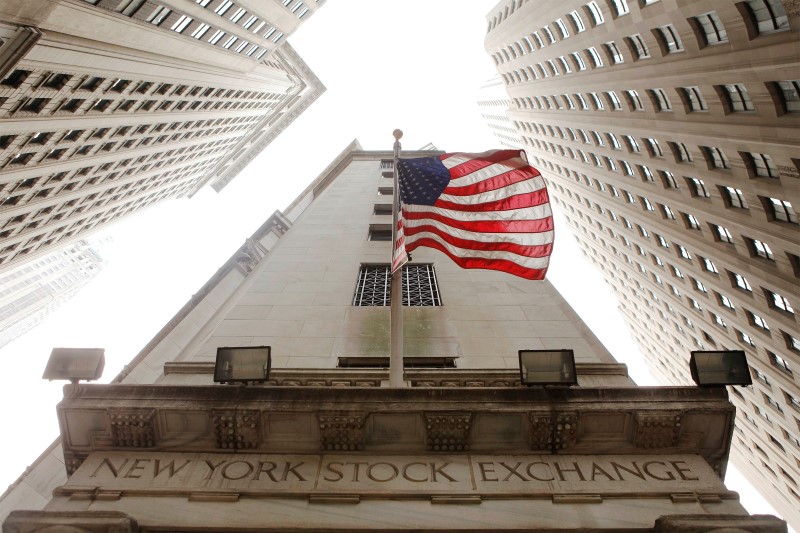Investing.com -- U.S. stock futures pointed higher on Friday, suggesting an extension of gains made in the prior session, although equities are still on track to slump to a negative September.
At 06:58 ET (10:58 GMT), the Dow futures contract had added 167 points or 0.5%, S&P 500 futures increased by 22 points or 0.5%, and Nasdaq 100 futures jumped by 102 points or 0.7%.
The main indices on Wall Street finished in the green on Thursday, with the tech-heavy Nasdaq Composite the outperformer following a climb of 0.8%. Stocks were supported by a pull-back in U.S. Treasury yields from 16-year highs.
Heading into the final trading day of both the month, the Nasdaq and benchmark S&P 500 are on course to slip to their worst months so far this year, while the 30-stock Dow Jones Industrial Average is on pace to decline by 3%.
On the data front, investors will be keeping an eye on the latest U.S. personal consumption expenditures (PCE) price index -- the Federal Reserve's preferred inflation gauge -- due out later on Friday. Attention has been fixed recently on the Fed's future interest rate path, as well as a spike in oil prices and an ongoing budgetary stand-off in Washington that threatens to cause a government shutdown.
PCE looms large
Economists expect the headline PCE reading for August to accelerate slightly, an occurrence that would suggest lingering upward pressure on prices in the world's largest economy.
The measure is seen speeding up to 0.5% from 0.2% in July on a monthly basis. Year-on-year, it is projected to jump to 3.5% from 3.3%.
However, the pace of the so-called "core" index, which strips out items like food and energy, is forecast to remain unchanged month-on-month and decelerate to 3.9% from 4.2% annually.
Fed officials will likely be paying close attention the metric as they decide whether to raise borrowing costs again this year.
The American central bank held rates at a range of 5.25% to 5.50% last week, but flagged that further tightening may be required at either its November or December meetings to help cool inflation.
Nike beats profit estimates
In corporate news, Nike Inc (NYSE:NKE) shares jumped by around 8% in U.S. premarket trading after the athletic apparel group reported much better than expected fiscal first-quarter earnings that overshadowed a miss on revenue, pressured by weakness in North America and an economic slowdown in its key China market.
Earnings per share (EPS) during the three-month period came in $0.94 on revenue of $12.94 billion. Analysts polled by Investing.com had anticipated EPS of $0.75 on sales of $13.02B.
Bernstein analysts said Oregon-based Nike, which also maintained its fiscal year 2024 guidance, delivered "a nice beat."
Oil heading for weekly gain amid supply tightness
Oil prices gained in choppy trading on Friday, remaining on course for a 2% increase this week amid supply tightness in the U.S. and hopes for a bump up in demand in China during its Golden Week holiday.
Prices have surged by 30% in the latest quarter to their highest levels in 2023 thanks in part to moves by Saudi Arabia and Russia to extend output cuts until the end of the year. Further support has come recently from the U.S., where storage at a major delivery point for U.S. crude futures is at its lowest level since July 2022.
Meanwhile, strong travel activity over the week-long Golden Week holiday in China is expected to boost demand in the world's biggest fuel importer.
Analysts are also looking ahead to a ministerial panel of the Organization of the Petroleum Exporting Countries and its allies -- known as OPEC+ -- next week, when reports suggest that Saudi Arabia, the group's de facto leader, may introduce a potential reduction in voluntary supply cuts.
By 06:56 ET, the U.S. crude futures traded 0.9% higher at $92.53 a barrel, while the Brent contract rose by 0.6% to $93.66.
(Oliver Gray contributed to this report.)
